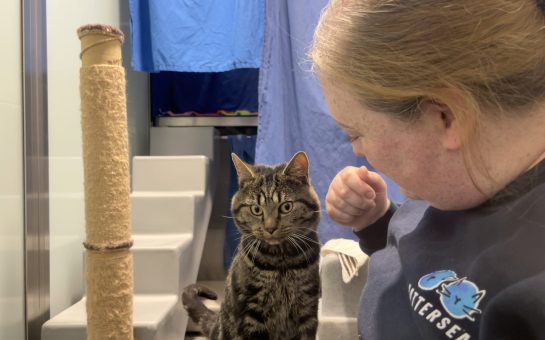In the same way that Spotify dismantled individual ownership of music, subscription-based networks could do away with the need to own your own home, according to experts at a housing panel event in Kensington this week.
Houses could be rented in different corners of the country for a flat monthly fee, which goes into a shared kitty for collective maintenance, or upgrades, instead of leaching into the wallets of private landlords.
These were among the innovative ideas presented at the Future of Renting panel event on Wednesday night at The Design Museum in Kensington.
“We need to create models that aren’t just renting or owning,” said Nicholas Lobo Brennan, co-founder of London-based architecture studio Apparata, and one of three panelists at the event.
Each of the panelists was invited to share their ideas on how to tackle the soaring house prices and stagnating wages that have put home ownership out of reach for many in Britain — and especially for millennials living in London.
Nicholas said that housing has already changed dramatically, with Britain ranking in the bottom five EU countries for levels of home ownership, and that new lifestyles of digital nomadery, constant job changes and the ‘cloudification’ of consumption could change the market entirely.
Nicholas said: “If you live in London as a student or young adult, you are changing homes all the time.
“We also don’t need to own so much stuff anymore, and for convenience you might not want that burden.”
Nicholas spoke of how changing lifestyles influenced his team’s design plans for new apartment blocks, called the London Civic Apartment, which are fully customisable and where walls could be knocked down to facilitate sharing of appliances and possessions.
Maria Jonsson, an insights analyst with Ikea, similarly spoke of how Ikea was embracing ideas of affordability, flexibility and fluidity by designing modular furniture.
“With these modular solutions, you are able to bring these with you and adapt them to a new living space,” she said.
Maria is also an expert involved in Ikea’s annual Life at Home Report, which analyses what makes consumers feel at home in a changing world.
Jamiee Williams of SPACE10, a future-living lab in Copenhagen, took these concepts to another level by suggesting a whole new concept of housing: subscriptions.
“It would change the way we consume dramatically; we could roam the whole world, working or living anywhere,” she said.
She spoke of rent payments becoming like owning equity in a company — something that works co-operatively, where the renter becomes more like an investor.
In 2017, SPACE10 launched the One Shared House 2030 survey, which asked respondents which goods and services they would be willing to share, and Jamiee said a large number of respondents were willing to share cars, appliances and services.
At the moment, however, many of these ideas remain at the panel-discussion stage.
During a Q&A session following panel discussions, fashion writer and columnist Henrietta Thompson told those gathered about her new start-up HARTH, which will create an online app where users can lend and rent furniture.
She said her similar concepts of shared ownership, where users can quickly furnish new accomodation without worrying about future disposal — or make money by lending unused items — were exciting prospects for a sustainable, flexible and affordable future.
Henrietta admitted however that in the fashion world, despite services such as Rent the Runway, only 6% of clothing is currently rented rather than privately owned. Perhaps people are fundamentally possessive about the things closest to them.
“In ten years the housing market will be unrecognisable,” said Nicholas.
“I think it will be unrecognisable in five,” said Jamiee.
Though the methods and solutions may differ, the one thing that seems certain is change.
Feature image shows (from left to right): host Justin McQuirk, Maria Jonsson, Nicholas Lobo Brenna and Jamiee Williams




